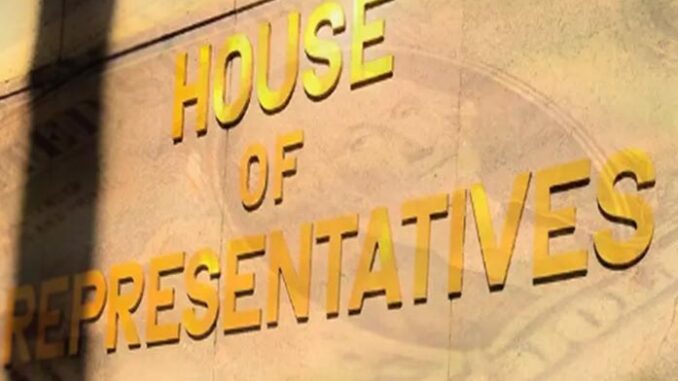
Nearly every week, the battle between Arizona Corporation Commissioner Bob Burns and Arizona Public Service makes headlines. Burns is fighting the behemoth utility service for increased transparency in its political spending.
While Burns has significant support from the public, he has met with significant opposition from his fellow commissioners. Commissioners Tom Forese, Boyd Dunn, Andy Tobin, and Doug Little appear to use their power is support of Arizona Public Service (APS). In fact, it seems they have made a concerted effort to throw roadblocks in Burns’ path every step of the way.
Many other elected representatives are privately supporting Burns, but with a few exceptions, that support has not been evident in the public square. They complain vaguely about “dark money,” and the ethically challenged “captive commissioners,” but rarely mention APS.
Their silence has been mystifying, but it shouldn’t be. APS is very generous with the money they make off of ratepayers.
When they are not wining and dining politicians, the company’s team of lobbyists can be counted on to come through with funds for just about anything. From custom lapel pins, to lunch for the ladies of Prescott, the APS team comes through.
In some instances, APS money is funneled through the House of Representatives’ “Protocol” fund. Private money goes into that fund for the benefit of lawmakers and their staff:
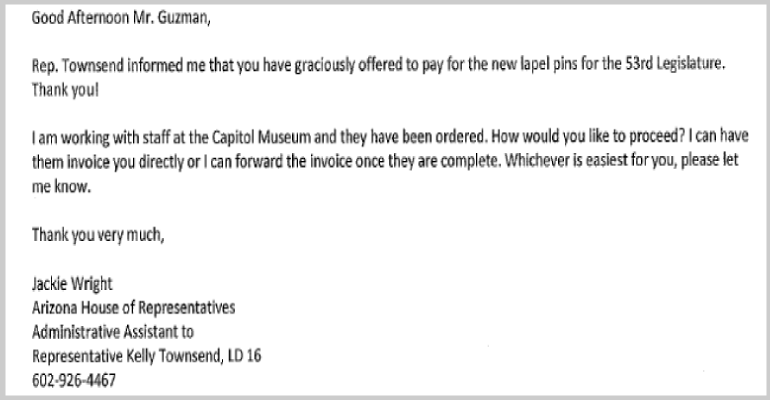
_____
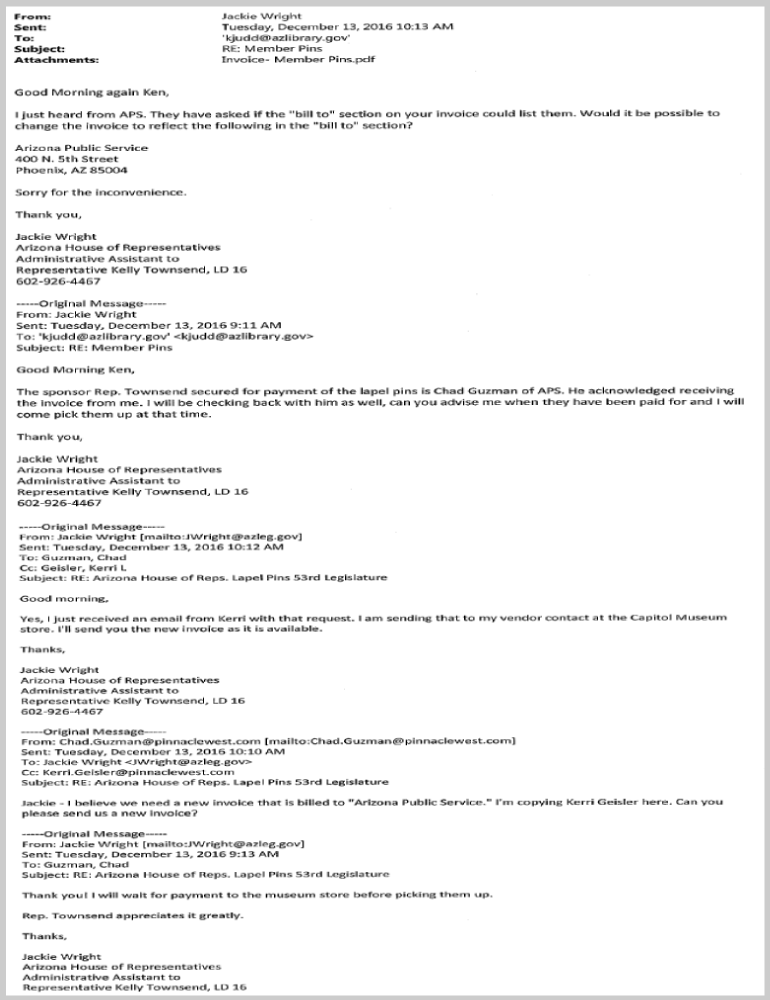
_____
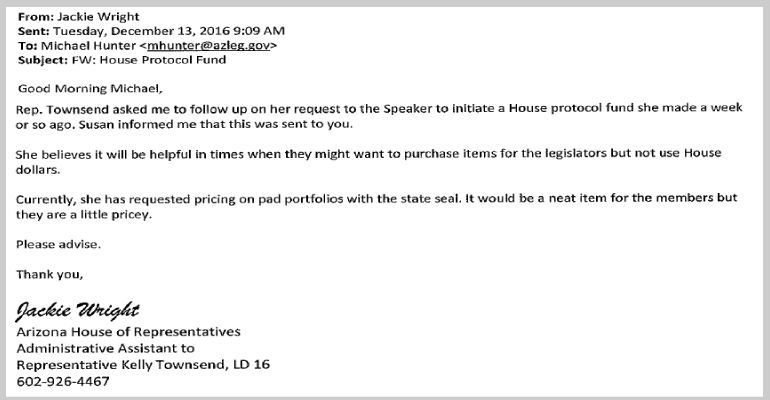
In other instances, it materializes in the form of lavish spreads or boxed lunches:
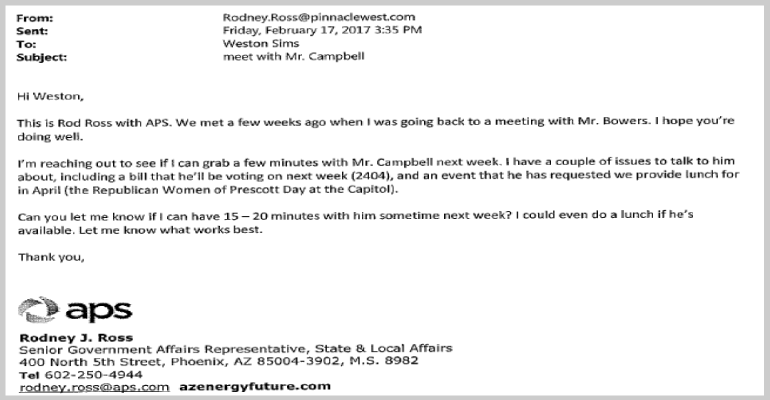
_____
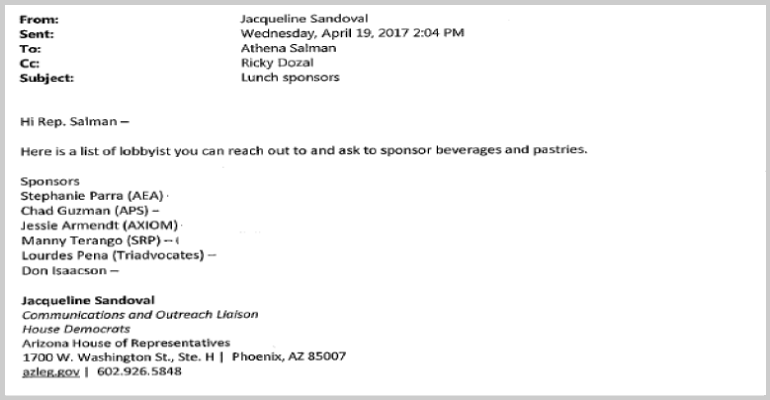
_____
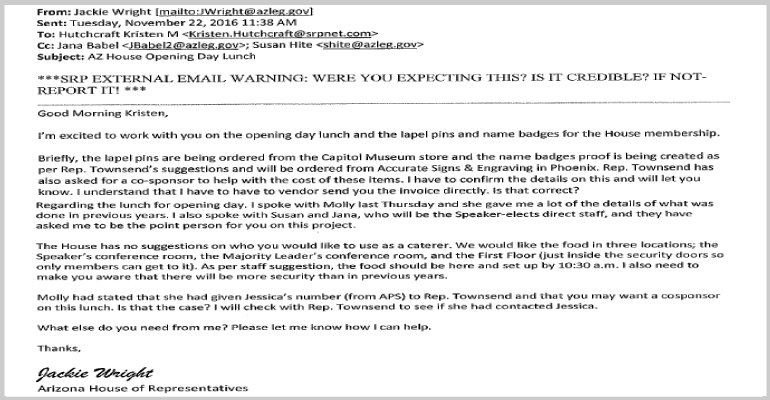
APS’ generosity allows lawmakers to generously attend benefits and galas without spending a dime:

_____
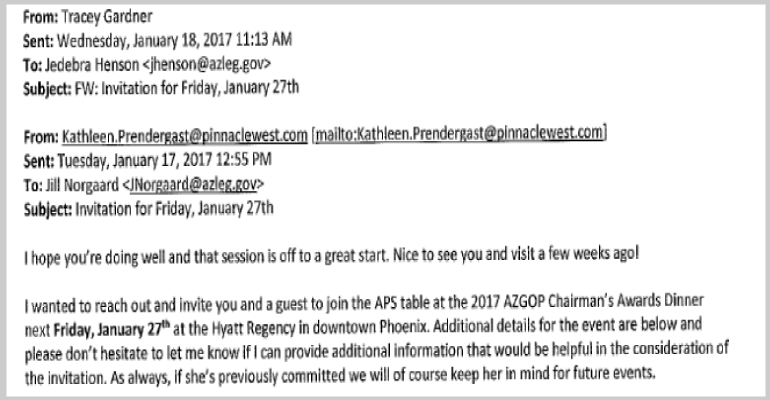
For the most part, the public can’t compete with APS for the attention of lawmakers. Even if they were made aware of an opportunity to serve the lawmakers in order to get some face time, given the fact that the “captive” commissioners just approved a rate increase for APS, they couldn’t afford it.
